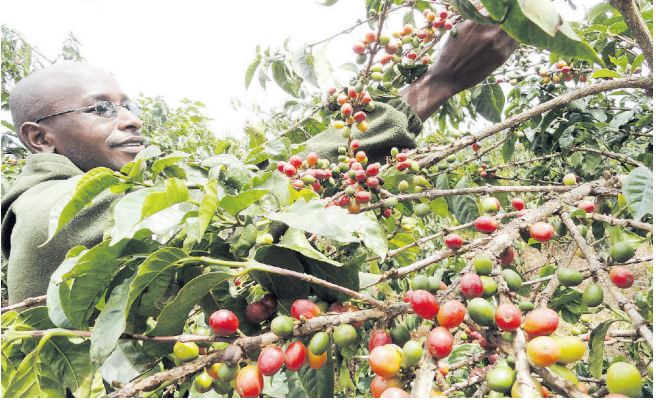
SCOPEinsight, a multinational rating agency supported by the Netherlands Embassy, has rolled out a formula that identifies the strengths and weaknesses of agricultural cooperatives, link them to NGOs and experts for technical assistance and recommends them to financial institutions for credits.
This is expected to revolutionize agricultural funding in the country, especially for small holder farmers viewed as high risk by creditors, with statistics showing that only five per cent of all loans advanced by banks go to finance agriculture in a country whose 75 per cent of the population depends on agriculture as primary source of food.
The initiative by SCOPEinsight intends to fill missing gaps in the administration and operations of small-scale cooperatives in a bid to improve their creditworthiness and convince creditors to embrace them.
According to SCOPEinsight’s local leadership, the rating, which is ongoing in several developing nations in the world, will see more farmers access finances to improve their productivity, hence limiting threats of food insecurity in the world. He explained that most smallholder farmers lack clear financial records, a key that creditors use while loaning.
While rating a cooperative, SCOPEinsight experts tackle nine critical areas, which include supply, internal management, financial management, sustainability, operations, and external risks, with each of those areas awarded points ranging from 1-5. The highest mark is 5, medium is between 3 3.,5, while less than three indicates low performance.
After assessing a firm, the company then helps those producer organizations/SMEs to identify suitable agencies or experts to give them skills in areas where they perform dismally to improve their merits.
‘’Apart from helping farming groups to understand the creditworthiness of their businesses and develop their risk profile, we also identify their weaknesses and engage their development partners in developing relevant curricula that address the gaps in production, financing, and market linkages to help those firms improve,’’ the firm's top leadership told the Star.
The agency is also working hand in hand with various creditors in Kenya in a bid to convince them to relook at their harsh loaning criteria that lock out many smallholder farmers.
Since its inception in Kenya almost a decade ago, the company has managed to rate at least 300 farming cooperatives, with most of them improving their profiles, accessing credits, and increasing their productivity.
One such group is Kabuboni Farmers Cooperation in Tharaka-Nithi. The farmers had relied on growing coffee for their main source of income, but when global coffee prices plummeted, a number of the farmers neglected the crop and the sustainability of their supply chain was at risk.
They identified an opportunity to diversify into dairy farming, although many of the farmers already kept dairy cows, they didn’t have facilities to store the milk at the correct temperature.
The 900-member cooperative also lacked credible financial and risk profile records to obtain credit. After assessing the cooperative’s strengths and weaknesses, SCOPEinsight provided them a detailed report highlighting areas where improvement was needed and recommended it to experts for assistance. It is from this initiative that Kabuboni managed to obtain Sh3 million to set up a milk chilling plant.
The move is expected to be a game-changer as many farmer organizations in Kenya are unable to obtain credit mainly due to a lack of a standardized way to rate the creditworthiness of their businesses and develop their risk profiles.
Although most financial institutions have loan packages targeting farmers, those institutions have little understanding of the agriculture undertaken and hence fail to notice the economic viability of farmers.
The initiative by SCOPEinsight comes on the backdrop of a recent report by FAO that shows a global decrease in agricultural funding. World Bank lending for agriculture declined from $3.66 billion in 1990 to $1.34 billion in 2000. Agriculture loans accounted for 18 percent of World Bank lending in the 1990s, but only about nine per cent in the 2000s.
Except for IFAD, all of whose lending is to agriculture, there was a substantial decline in total IFI lending to agriculture, both in absolute terms and for individual lenders. In Kenya, the government allocated a paltry 3.5 per cent of its budget on agriculture, an indication of low financial confidence in the agriculture sector, which is ironically the country’s economic engine.
Apart from Kenya, the agency operates in several other developing nations in Africa, Asia, and Latin America.
The firm is optimistic that farmers can produce more food if the government and other stakeholders, especially in the financial circle, change the negative mindset about the sector. The agency collaborates with other firms and NGOs, including IFAD, IFC, Solidaridad, ICCO and local banks to assist farmers.
The agency charges a fee to offer services to co-operatives. It is, however, working on a membership subscription module, which will see co-operatives pay much lower fees.


















